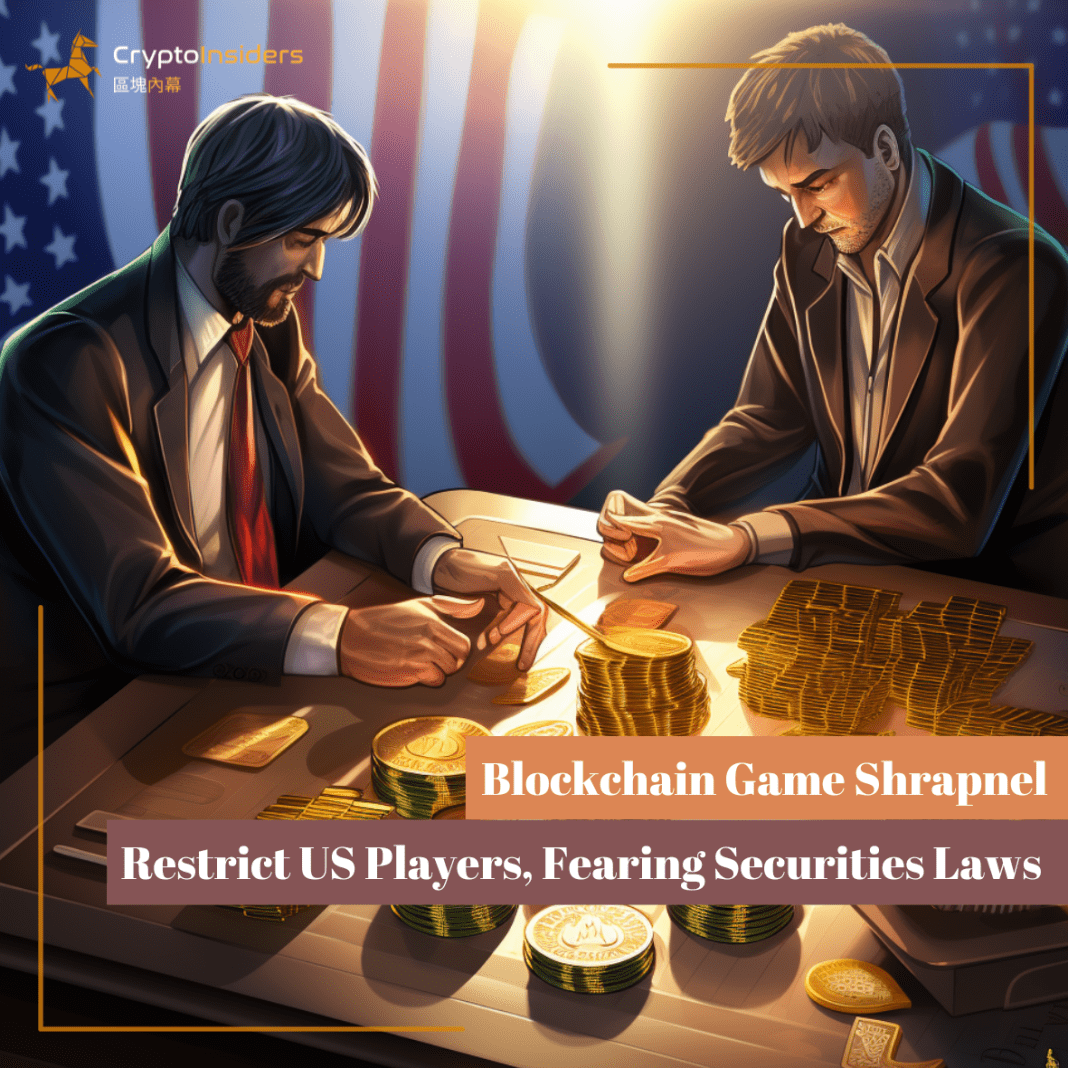Introduction
Blockchain gaming has been growing in popularity in recent years, with many developers creating games that incorporate blockchain technology. However, some of these games may face regulatory challenges, particularly in the United States, where securities laws are strict. Shrapnel, a blockchain game that allows players to own and trade virtual tanks, has decided to restrict US players due to fears of securities laws.
Shrapnel’s Decision to Restrict US Players
Shrapnel is a game developed by Immutable, a blockchain gaming company. The game allows players to own and trade virtual tanks, which are represented as non-fungible tokens (NFTs) on the Ethereum blockchain. However, the game’s developers have decided to restrict players from the United States due to concerns about regulatory compliance.
According to Immutable, the decision was made after consulting with legal experts and taking into account the current regulatory environment in the United States. The company stated that it did not want to risk running afoul of securities laws, which could result in fines or legal action.
The Challenges of Blockchain Gaming and Securities Laws
Blockchain gaming is still a relatively new industry, and it is not yet clear how existing securities laws will apply to these games. The US Securities and Exchange Commission (SEC) has stated that some blockchain-based assets may be considered securities, depending on how they are structured and marketed.
This has led to uncertainty among game developers, who may be unsure whether their games will be subject to securities laws. Some developers have chosen to avoid the US market altogether, while others have taken a more cautious approach and restricted access to their games for US players.
The Future of Blockchain Gaming and Regulatory Compliance
As blockchain gaming continues to grow in popularity, it is likely that regulatory challenges will become more common. Game developers will need to carefully consider how their games are structured and marketed, and may need to consult with legal experts to ensure compliance with securities laws.
Despite these challenges, many developers remain optimistic about the future of blockchain gaming. The use of blockchain technology can provide unique benefits for gamers, such as increased ownership and control over virtual assets. As the industry continues to evolve, it is likely that new solutions will be developed to address regulatory challenges and ensure the continued growth of blockchain gaming.
Related:Decentralized Crypto Exchanges: Wash Trading Report
Conclusion
Shrapnel’s decision to restrict US players highlights the challenges that blockchain game developers face when it comes to regulatory compliance. As the industry continues to grow, it will be important for developers to stay informed about securities laws and take steps to ensure compliance. However, with the unique benefits that blockchain technology can provide for gamers, it is likely that the industry will continue to thrive in the years to come.





